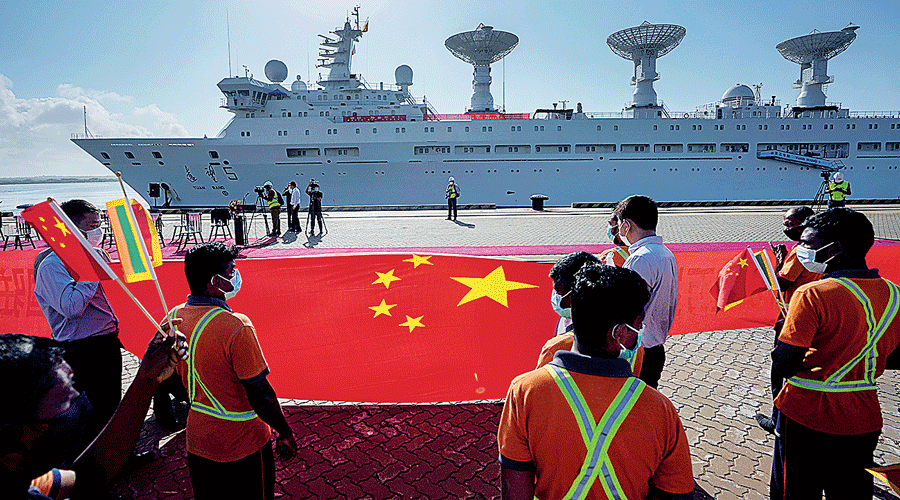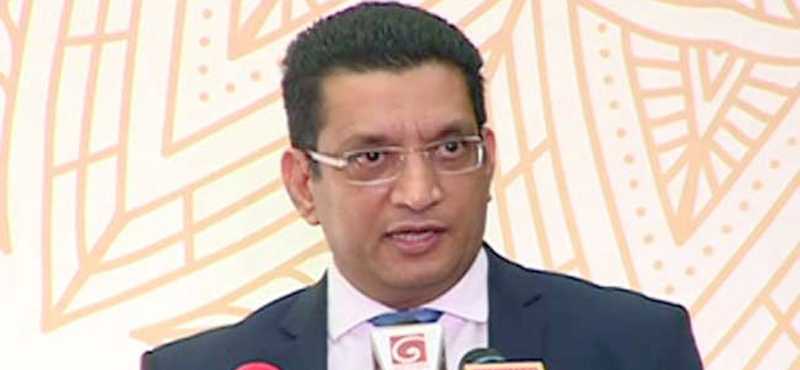India on Monday expressed concern at the UN Human Rights Council about Sri Lanka’s lack of progress in evolving a political solution to its ethnic problem.
This is being perceived as a reprimand for Colombo for allowing the Chinese “spy” vessel to dock at Hambantota Port last month despite New Delhi raising security concerns about its presence so close to the Indian coast.
Presenting India’s statement at the interactive dialogue at the UNHRC, on the Office of the United Nations High Commissioner for Human Rights (OHCHR) report on Sri Lanka, India’s permanent representative to the UN in Geneva, Indra Mani Pandey, said: “The Indian delegation notes with concern the lack of measurable progress by Government of Sri Lanka on their commitments of a political solution to the ethnic issue — through full implementation of the 13th Amendment of the Constitution, delegation of powers to provincial councils and holding of provincial council elections at the earliest.”
Although India has been an early responder to Sri Lanka’s financial crisis, the ambassador took a swipe at Colombo for the dire straits it finds itself in. “The current crisis in Sri Lanka has demonstrated the limitations of a debt-driven economy and the impact it has on the standard of living,” Pandey said, alluding to Colombo borrowing heavily from China.
“It is in Sri Lanka’s best interests to build capacity of its citizens and work towards their empowerment, for which devolution of power to the grassroots level is a prerequisite. In this connection, operationalisation of provincial councils through early conduct of elections will enable all citizens of Sri Lanka to achieve their aspirations for a prosperous future. We therefore urge Sri Lanka to take immediate and credible action in this regard.”
The latest statement was in sharp contrast to one made in March this year in both tone and tenor. Presenting India’s statement at the interactive dialogue on the OHCHR report on Sri Lanka then, the Indian delegation had urged Colombo, without reprimanding it, to implement the 13th amendment and devolve powers to the provincial councils. India had also abstained from a vote initiated by the United Kingdom on Sri Lanka’s human rights record at that session of the UNHRC.
A vote on the subject is scheduled for October 7-8 in this session too, but Indian officials in Geneva were circumspect about how India would vote this time, maintaining that it was too early to say for sure.
India’s position on Sri Lanka has oscillated at the UNHRC since 2009 through different dispensations in both countries -- abstaining thrice since 2014, voting against Colombo twice (in 2012 and 2013) and supporting a Lankan resolution in 2009.











